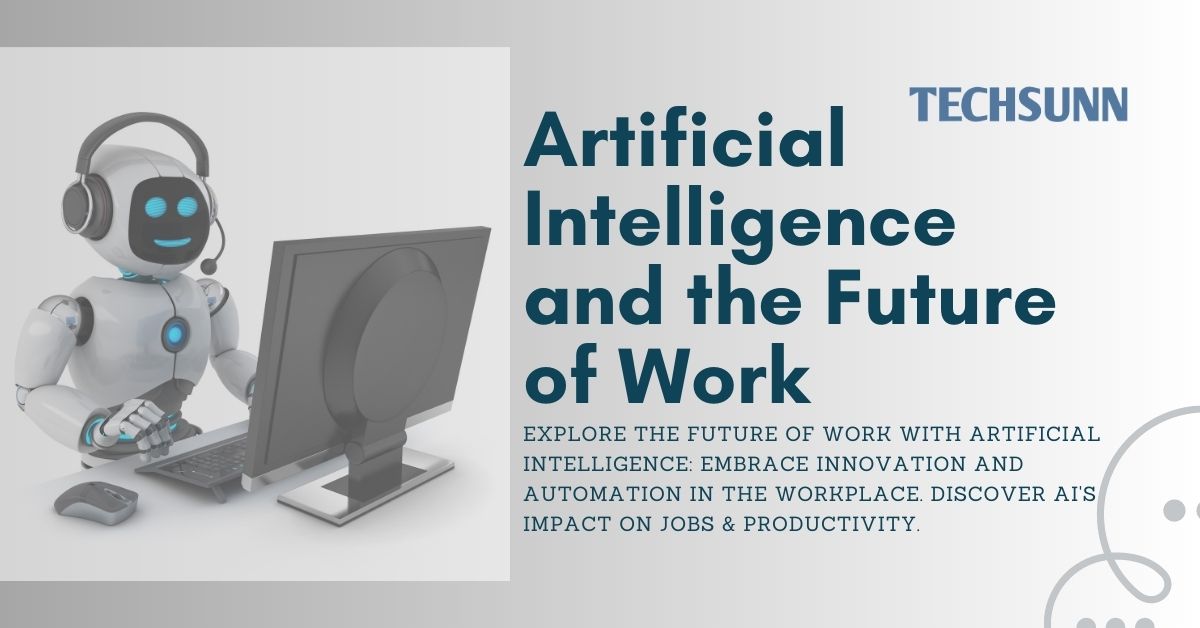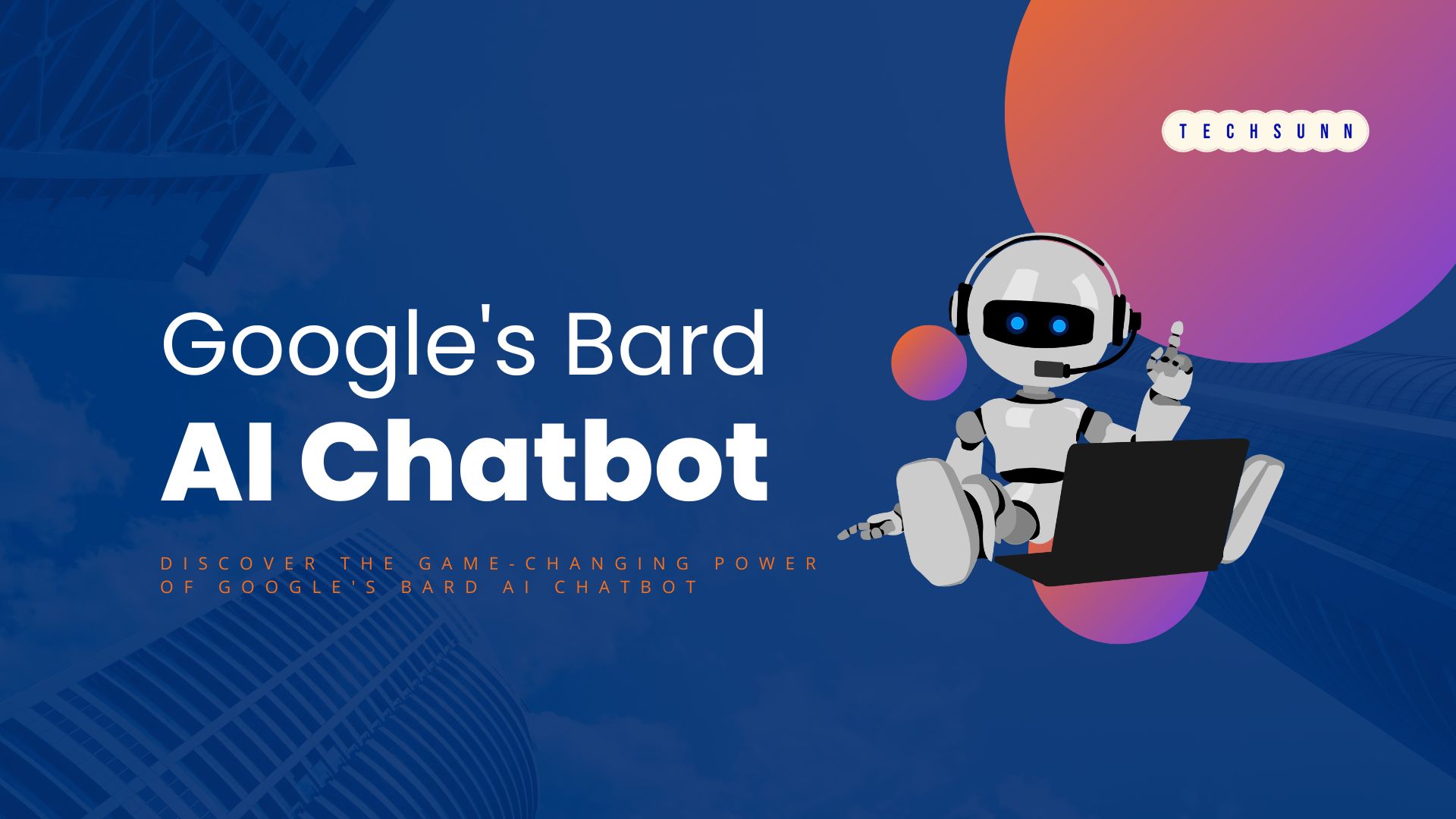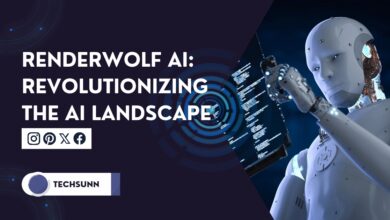Artificial Intelligence and the Future of Work

Explore the Future of Work with Artificial Intelligence: Embrace innovation and automation in the workplace. Discover AI’s impact on jobs & productivity.
Artificial Intelligence Opportunities
Expanded effectiveness and efficiency: simulated intelligence can robotize redundant and tedious errands, permitting laborers to zero in on more imaginative and key work. This can prompt expanded efficiency and proficiency in the working environment.
Further developed direction: computer based intelligence can give constant information examination and experiences that can help laborers pursue better and more educated choices. This can prompt improved results and further developed execution in different ventures.
Artificial Intelligence Advancement
New position amazing open doors: As artificial intelligence innovation keeps on advancing, it will set out new position open doors in fields, for example, information science, AI, and simulated intelligence improvement.
Personalization: simulated intelligence can break down immense measures of information to make customized encounters for clients, further developing consumer loyalty and unwaveringness.
Artificial Intelligence Challenges
Work removal: As artificial intelligence innovation computerizes more undertakings, it might prompt work dislodging in specific ventures, particularly those that depend on monotonous errands or difficult work.
Artificial Intelligence Abilities
Abilities hole: The rising utilization of computer based intelligence innovation in the work environment expects laborers to have new abilities, for example, information examination and programming, which might prompt an abilities hole in the labor force.
Predisposition and moral worries: computer based intelligence calculations might be one-sided and propagate social and social inclinations, prompting likely moral worries in the working environment.
Online protection gambles: As simulated intelligence innovation turns out to be more coordinated into working environment frameworks, it additionally presents network safety chances, for example, information breaks and framework hacks.
Artificial Intelligence Dificulties
To address these difficulties, it is essential for associations and policymakers to adopt a proactive strategy to coordinate computer based intelligence innovation into the work environment. This remembers money management for preparing projects to foster the essential abilities for the labor force, tending to moral and predisposition worries in computer-based intelligence calculations, and carrying out vigorous network protection measures.
Notwithstanding the amazing open doors and difficulties examined above, there are different variables to think about coming down the line for work with computer based intelligence:
1. Human-simulated intelligence joint effort: man-made intelligence innovation can supplement human abilities and improve human navigation. Laborers can team up with artificial intelligence frameworks to further develop results and offer better types of assistance to clients.
2. Change administration: The joining of simulated intelligence innovation into the work environment requires change the board to guarantee that specialists figure out the advantages and ramifications of the innovation. Compelling correspondence and preparing are fundamental for address any worries and to guarantee that specialists can adjust to the changes.
3. Privacy worries: The utilization of artificial intelligence innovation in the working environment raises protection concerns, especially with the assortment and utilization of individual information. Associations should guarantee that they are straightforward about the utilization of individual information and follow protection guidelines.
4. Social effect: The reception of man-made intelligence innovation in the work environment will have social effects, for example, changes in the work market and pay dissemination. Policymakers need to foster approaches that address the expected social effects of artificial intelligence reception, for example, retraining programs for laborers who are uprooted by man-made intelligence innovation.
As AI innovation keeps on developing, it will significantly affect the fate of work. The valuable open doors and difficulties introduced by simulated intelligence innovation will require associations and policymakers to adopt a proactive strategy to guarantee that the advantages are acknowledged while tending to possible dangers and difficulties. With the right methodology, man-made intelligence can be a useful asset to upgrade efficiency, further develop direction, and set out new positions open doors.
Contemplations for the fate of work with AI are:
1. Regulation: The rising utilization of man-made intelligence in the working environment has prompted calls for guidelines to guarantee that the innovation is utilized morally and capably. Administrative structures are important to safeguard laborers and shoppers, guarantee fair contest, and advance development.
2. Interoperability: As simulated intelligence innovation turns out to be more predominant, interoperability will turn out to be progressively significant. Different artificial intelligence frameworks should have the option to impart and cooperate consistently to guarantee that associations can use the maximum capacity of man-made intelligence.
3. Cost: artificial intelligence innovation can be costly to carry out, and more modest associations might battle to bear the cost of it. The expense of computer based intelligence innovation might make a split among bigger and more modest associations, prompting expected imbalances in the working environment.
4. Job upgrade: The combination of AI innovation into the work environment will require the update of responsibilities to exploit the innovation’s abilities. Associations should distinguish the assignments that can be robotized and rebuild tasks to guarantee that laborers can utilize their abilities actually.
Simulated intelligence innovation can raise moral worries connected with predisposition, reasonableness, and responsibility. For instance, man-made intelligence frameworks can sustain existing predispositions in the information used to prepare them, prompting unjustifiable results for specific gatherings. Associations should do whatever it may take to guarantee that computer based intelligence frameworks are fair and impartial, and that they don’t propagate segregation.
Responsibility is one more moral worry with simulated intelligence innovation. Associations should assume a sense of ownership with the choices made by man-made intelligence frameworks and guarantee that they can be considered responsible for any adverse results. This requires straightforwardness and oversight to guarantee that man-made intelligence frameworks are utilized morally and dependably.
Also Read Microsoft to Coordinate GPT-4 in Microsoft Office Programming

At long last, man-made intelligence innovation raises significant moral contemplations around security and information assurance. The utilization of simulated intelligence frameworks frequently includes the assortment and utilization of individual information, and associations should guarantee that they consent to security guidelines and safeguard people’s freedoms to protection.
Notwithstanding these moral contemplations, there are likewise inquiries around the effect of man-made intelligence on human imagination and the job of laborers in the work environment. As computer based intelligence frameworks become further developed, they might have the option to perform errands that were recently remembered to require human inventiveness, like composition and plan. This could prompt a change in the kinds of positions available, with a greater focus on jobs that require social and emotional intelligence.
By and large, the eventual fate of work with computer based intelligence presents the two open doors and difficulties. By adopting a proactive strategy to tending to these difficulties, associations and policymakers can guarantee that the advantages of simulated intelligence innovation are acknowledged while safeguarding laborers and society. This requires an emphasis on moral contemplations, security, and responsibility, as well as cooperation between various partners to advance development and monetary development.
All in all, artificial intelligence presents the two amazing open doors and difficulties for the fate of work. While it can possibly expand effectiveness and efficiency, it additionally presents dangers like work dislodging, inclination, and network protection concerns. It ultimately depends on associations and policymakers to address these difficulties and foster a system for a fate of work that use the advantages of man-made intelligence while guaranteeing the insurance of laborers and society.




